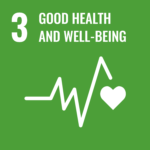Dr. Brian Bedard is a veterinary epidemiologist and Alinea International’s Director of Food Safety and Animal Health. Dr. Bedard was a coordinator of the World Bank’s Global Program for Human and Avian Influenza, swine flu response and post-SARS One Health response and is an experienced One Health practitioner.
In recent weeks, I had the opportunity to virtually train veterinarians who are helping women farmers in Ethiopia protect their livestock from transmitting zoonotic diseases and prevent the spread of COVID-19. This adapted One Health program is part of the Capacity Development Support Facility Project, funded by Global Affairs Canada, which helps Ethiopian farmers improve agricultural productivity with a focus on women.
 The critical role of women is often understated in One Health programming. One Health recognizes the connectivity across people, animals, plants and our shared environment. This is why, when we develop training programs like the one in Ethiopia, we focus on supporting women in their unique position in livestock value chains, health systems, families and communities. As primary livestock caregivers, vendors and consumers in traditional wet markets, women are at the frontlines of defence against existing and emerging zoonotic diseases. They are also particularly vulnerable to the cascading COVID-19 socio-economic impacts of poverty, maternity risks and gender-based violence.
The critical role of women is often understated in One Health programming. One Health recognizes the connectivity across people, animals, plants and our shared environment. This is why, when we develop training programs like the one in Ethiopia, we focus on supporting women in their unique position in livestock value chains, health systems, families and communities. As primary livestock caregivers, vendors and consumers in traditional wet markets, women are at the frontlines of defence against existing and emerging zoonotic diseases. They are also particularly vulnerable to the cascading COVID-19 socio-economic impacts of poverty, maternity risks and gender-based violence.
Empowering women around the world has the potential to be a catalyst to preventing the next pandemic and addressing the many debilitating, neglected, commonly occurring animal-sourced diseases that persist in poorer communities.
This creates a fundamental link between One Health and Canada’s feminist agenda, and leads to the need for a proactive Feminist One Health Imperative. We are taking International Development Week as an opportunity to explore the Feminist One Health Imperative with colleagues across the global network of One Health practitioners.
 This is a call to action to address the root causes of zoonotic diseases transmitted from animals to people at the human-environment-animal interface, with women as the catalyst for a robust One Health approach. It uniquely supports several of Canada’s Feminist International Assistance Policy Action Areas, namely: 1. Gender Equality and the Empowerment of Women and Girls; 2. Human Dignity (Health); and 4. Environment and Climate Action. Canada is a leader in One Health through the Public Health Agency of Canada, Canadian Food Inspection Agency, Global Public Health Intelligence Network, as well as recognized One Health practitioner experts, universities and private sector and civil society organizations across the country. Through these resources, combined with Global Affairs Canada’s leadership, Canada is recognized as a key player in global public health, animal health and ecosystem health linked to climate action.
This is a call to action to address the root causes of zoonotic diseases transmitted from animals to people at the human-environment-animal interface, with women as the catalyst for a robust One Health approach. It uniquely supports several of Canada’s Feminist International Assistance Policy Action Areas, namely: 1. Gender Equality and the Empowerment of Women and Girls; 2. Human Dignity (Health); and 4. Environment and Climate Action. Canada is a leader in One Health through the Public Health Agency of Canada, Canadian Food Inspection Agency, Global Public Health Intelligence Network, as well as recognized One Health practitioner experts, universities and private sector and civil society organizations across the country. Through these resources, combined with Global Affairs Canada’s leadership, Canada is recognized as a key player in global public health, animal health and ecosystem health linked to climate action.
 Between 2005 and 2011, we had the opportunity to implement the Canadian–funded Livestock Health Extension Services Project. This project recognized the role of women along the entire One Health continuum across seven provinces of China. It focused on the control of zoonotic diseases through high level training in epidemiology, risk assessment, surveillance, disease free zone management, animal ID and trace back, as well as laboratory management.
Between 2005 and 2011, we had the opportunity to implement the Canadian–funded Livestock Health Extension Services Project. This project recognized the role of women along the entire One Health continuum across seven provinces of China. It focused on the control of zoonotic diseases through high level training in epidemiology, risk assessment, surveillance, disease free zone management, animal ID and trace back, as well as laboratory management.
Many international agencies and bilateral donors address pandemic preparedness through a One Health lens to mitigate broader risks. However, there continues to be a gap in gender responsiveness. My experience working on global One Health initiatives – including as former coordinator of the World Bank’s Global Avian Influenza Program, swine flu response and post-SARS One Health response – has convinced me of the immense potential of the Feminist One Health Imperative as a viable approach to improving public health outcomes and livelihoods, especially for women.
For International Development Week 2021, I invite you to join us in pursuing the Feminist One Health Imperative as an innovative and more sustainable approach to pandemic preparedness and response around the world.
